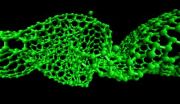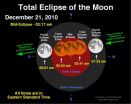(Press-News.org) "I have ready!" With this sentence the FC Bayern Munich coach Giovanni Trapattoni finished a furious rant about his team's performance in 1998. And "Mr Angelo" in a coffee advert points out to his neighbour with a mischievous smile: "I don't have a car at all". In both cases the Italians are unmistakeably recognizable and so the exuberant temperament of the first and the charming way of the second are seemingly "typically Italian".
The accent someone talks in plays a crucial role in the way we judge this person, psychologists of the Friedrich Schiller University Jena (Germany) found out recently. "The accent is much more important than the way a person looks", Dr. Tamara Rakic sums up one of the key findings of the study, which has just been published in the online edition of the "Journal of Personality and Social Psychology". The study is based on the PhD thesis of Dr. Rakic in the International Graduate College "Conflict and Cooperation between Social groups".
"The classification into social categories, like for instance ethnicity, happens spontaneously and helps us to understand and simplify the complex world and to enable us to deal more easily with complexity", Dr. Rakic says. However the psychologist continues, categorizing can turn into unreflected stereotype-based judgment and lead to discrimination. The psychologists from the Jena University investigate the process of person perception in a project, lead by Professor Dr. Melanie Steffens, within the research unit "Person Perception". In their current studies Dr. Rakic and her colleagues Professor Dr. Melanie Steffens and Professor Dr. Amélie Mummendey tested empirically for the first time the influence of language on ethnic categorization. "With our language we are not only transmitting information. Language itself provides a lot of information about the person speaking", Dr. Rakic says. According to Dr. Rakic one can draw conclusions from the language about the temperament, age or state of mind of a person. "Those who have an accent give away their ethnic background as well."
Previously scientists assumed that visual cues have a priority in categorizing unknown people. "The great majority of studies focused on the looks", the Jena psychologist Rakic says. In contrast the influence of the language – or more precisely of the accent – has been neglected so far. Wrongly, as the Jena scientists could demonstrate now.
They showed to the participants the photos of German and Italian looking persons together with a written statement of the persons depicted. Then the participants had to assign the statements to the depicted persons. In accordance with earlier findings mix-ups were particularly common within the groups of German and Italian looking persons. Statements made by German looking persons however were not wrongly assigned to Italian looking persons (or vice versa). But it got more interesting when accents were added: Now some German looking persons spoke standard German and some with an Italian accent, (as well as Italian looking people). "The results indicate that the participants orientated themselves nearly exclusively on the spoken accent while categorizing people", Dr. Rakic summarizes her results. The looks which came into the equation by categorizing in the first experiment while no other information was provided were not important anymore. According to Rakic this is proof of the great importance of language as a source of information in the ethnic categorization: this is in accordance with the assumption that accent free language plays a crucial role in social integration.
INFORMATION:
Original Publication:
Rakic T, Steffens MC, Mummendey A: Blinded by the accent! The minor role of looks in ethnic categorization. Journal of Personality and Social Psychology 2010, DOI: 10.1037/a0021522
Contact Details:
Dr. Tamara Rakic
DFG Research Unit "Person Perception"
Institute for Psychology at the Friedrich Schiller University Jena
Leutragraben 1
D-07743 Jena
Email: tamara.rakic@uni-jena.de
Typically Italian, isn't it?
Psychologists from Jena University, Germany, show how the accent shapes our perception of a person
2010-12-18
ELSE PRESS RELEASES FROM THIS DATE:
How do you cut a nanotube? Lots of compression
2010-12-18
VIDEO:
Compression causes nanotubes to buckle and twist and eventually to lose atoms from their lattice-like structure.
Click here for more information.
PROVIDENCE, R.I. [Brown University] — A pipefitter knows how to make an exact cut on a metal rod. But it's far harder to imagine getting a precise cut on a carbon nanotube, with a diameter 1/50,000th the thickness of a human hair.
In a paper published this month in the British journal Proceedings of the Royal Society ...
K-State research looks at pathogenic attacks on host plants
2010-12-18
MANHATTAN, KAN. -- Two Kansas State University researchers focusing on rice genetics are providing a better understanding of how pathogens take over a plant's nutrients.
Their research provides insight into ways of reducing crop losses or developing new avenues for medicinal research.
Frank White, professor of plant pathology, and Ginny Antony, postdoctoral fellow in plant pathology, are co-authors, in partnership with researchers at three other institutions, of an article in a recent issue of the journal Nature. The article, "Sugar transporters for intercellular exchange ...
Study reveals major shift in how eczema develops
2010-12-18
Like a fence or barricade intended to stop unwanted intruders, the skin serves as a barrier protecting the body from the hundreds of allergens, irritants, pollutants and microbes people come in contact with every day. In patients with eczema, or atopic dermatitis, the most common inflammatory human skin disease, the skin barrier is leaky, allowing intruders – pollen, mold, pet dander, dust mites and others – to be sensed by the skin and subsequently wreak havoc on the immune system.
While the upper-most layer of the skin – the stratum corneum – has been pinned as the ...
Ancient raindrops reveal a wave of mountains sent south by sinking Farallon plate
2010-12-18
50 million years ago, mountains began popping up in southern British Columbia. Over the next 22 million years, a wave of mountain building swept (geologically speaking) down western North America as far south as Mexico and as far east as Nebraska, according to Stanford geochemists. Their findings help put to rest the idea that the mountains mostly developed from a vast, Tibet-like plateau that rose up across most of the western U.S. roughly simultaneously and then subsequently collapsed and eroded into what we see today.
The data providing the insight into the mountains ...
Computer games and science learning
2010-12-18
Computer games and simulations are worthy of future investment and investigation as a way to improve science learning, says LEARNING SCIENCE: COMPUTER GAMES, SIMULATIONS, AND EDUCATION, a new report from the National Research Council. The study committee found promising evidence that simulations can advance conceptual understanding of science, as well as moderate evidence that they can motivate students for science learning. Research on the effectiveness of games designed for science learning is emerging, but remains inconclusive, the report says.###
The report is available ...
You only live once: our flawed understanding of risk helps drive financial market instability
2010-12-18
Our flawed understanding of how decisions in the present restrict our options in the future means that we may underestimate the risk associated with investment decisions, according to new research by Dr Ole Peters from Imperial College London. The research, published today in the journal Quantitative Finance, suggests how policy makers might reshape financial risk controls to reduce market instability and the risk of market collapse.
Investors know that there are myriad possibilities for how a financial market might develop. Before making an investment, they try to capture ...
Efficient phosphorus use by phytoplankton
2010-12-18
Rapid turnover and remodelling of lipid membranes could help phytoplankton cope with nutrient scarcity in the open ocean.
A team led by Patrick Martin of the National Oceanography Centre has shown that a species of planktonic marine alga can rapidly change the chemical composition of its cell membranes in response to changes in nutrient supply. The findings indicate that the process may be important for nutrient cycling and the population dynamics of phytoplankton in the open ocean.
Tiny free-floating algae called phytoplankton exist in vast numbers in the upper ocean. ...
Effect of college on volunteering greatest among disadvantaged college graduates
2010-12-18
Sociologists have long known that a college education improves the chances that an individual will volunteer as an adult. Less clear is whether everyone who goes to college gets the same boost in civic engagement from the experience.
In an innovative study that compared the volunteering rates of college graduates with those of non–college graduates with similar social backgrounds and high school achievement levels, UCLA sociologist Jennie Brand found something striking: A college education has a much greater impact on volunteering rates among individuals from underprivileged ...
Ion channel responsible for pain identified by UB neuroscientists
2010-12-18
BUFFALO, N.Y. -- University at Buffalo neuroscience researchers conducting basic research on ion channels have demonstrated a process that could have a profound therapeutic impact on pain.
Targeting these ion channels pharmacologically would offer effective pain relief without generating the side effects of typical painkilling drugs, according to their paper, published in a recent issue of The Journal of Neuroscience.
"Pain is the most common symptom of injuries and diseases, and pain remains the primary reason a person visits the doctor," says Arin Bhattacharjee, PhD, ...
A total lunar eclipse and winter solstice coincide on Dec. 21
2010-12-18
With frigid temperatures already blanketing much of the United States, the arrival of the winter solstice on December 21 may not be an occasion many people feel like celebrating. But a dazzling total lunar eclipse to start the day might just raise a few chilled spirits.
Early in the morning on December 21 a total lunar eclipse will be visible to sky watchers across North America (for observers in western states the eclipse actually begins late in the evening of December 20), Greenland and Iceland. Viewers in Western Europe will be able to see the beginning stages of ...
LAST 30 PRESS RELEASES:
Microbe exposure may not protect against developing allergic disease
Forest damage in Europe to rise by around 20% by 2100 even if warming is limited to 2°C
Rapid population growth helped koala’s recovery from severe genetic bottleneck
CAR-expressing astrocytes target and clear amyloid-β in mouse model of Alzheimer’s disease
Unique Rubisco subunit boosts carbon assimilation in land plants
Climate change will drive increasing forest disturbances across Europe throughout the next century
Enhanced brain cells clear away dementia-related proteins
This odd little plant could help turbocharge crop yields
Flipped chromosomal segments drive natural selection
Whole-genome study of koalas transforms how we understand genetic risk in endangered species
Worcester Polytechnic Institute identifies new tool for predicting Alzheimer’s disease
HSS studies highlight advantages of osseointegration for people with an amputation
Buck Institute launches Healthspan Horizons to turn long-term health data into Actionable healthspan insights
University of Ottawa Heart Institute, the University of Ottawa and McGill University launch ARCHIMEDES to advance health research in Canada
The world’s largest brain research prize awarded for groundbreaking discoveries on how we sense touch and pain
Magnetofluids help to overcome challenges in left atrial appendage occlusion
Brain-clearing cells offer clues to slowing Alzheimer’s disease progression
mRNA therapy restores fertility in genetically infertile mice
Cloaked stem cells evade immune rejection in mice, pointing to a potential universal donor cell line
Growth in telemedicine has not improved mental health care access in rural areas, study finds
Pitt scientists engineer “living eye drop” to support corneal healing
Outcomes of older adults with advanced cancer who prefer quality of life vs prolonging survival
Lower music volume levels in fitness class and perceived exercise intensity
Of crocodiles, counting and conferences
AERA announces 2026 award winners in education research
Saving two lives with one fruit drop
Photonic chips advance real-time learning in spiking neural systems
Share of migratory wild animal species with declining populations despite UN treaty protections worsens from 44% to 49% in two years; 24% face extinction, up 2%
One in 20 babies experiences physical abuse, global review finds
Tundra tongue: The science behind a very cold mistake
[Press-News.org] Typically Italian, isn't it?Psychologists from Jena University, Germany, show how the accent shapes our perception of a person


